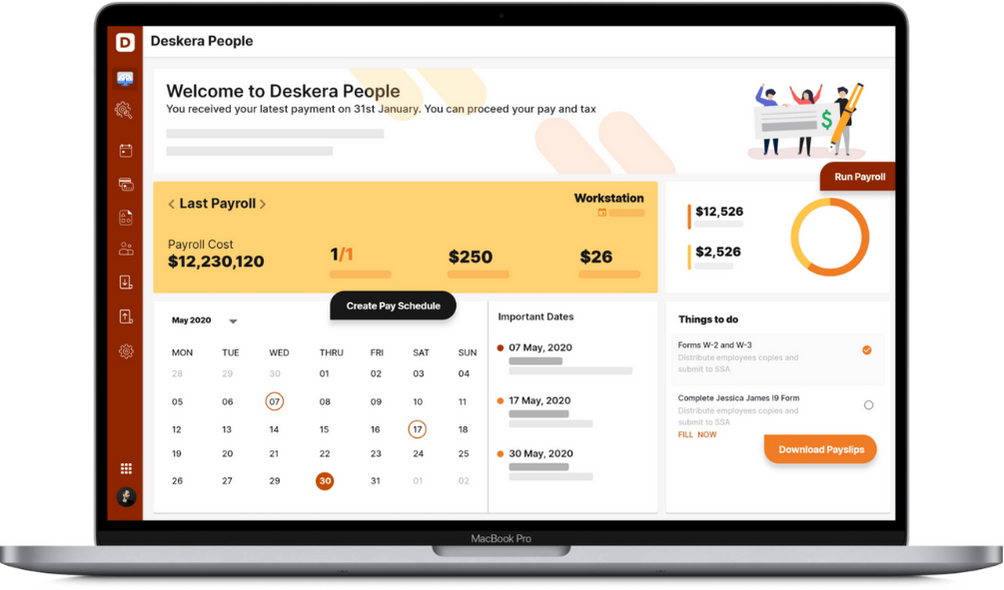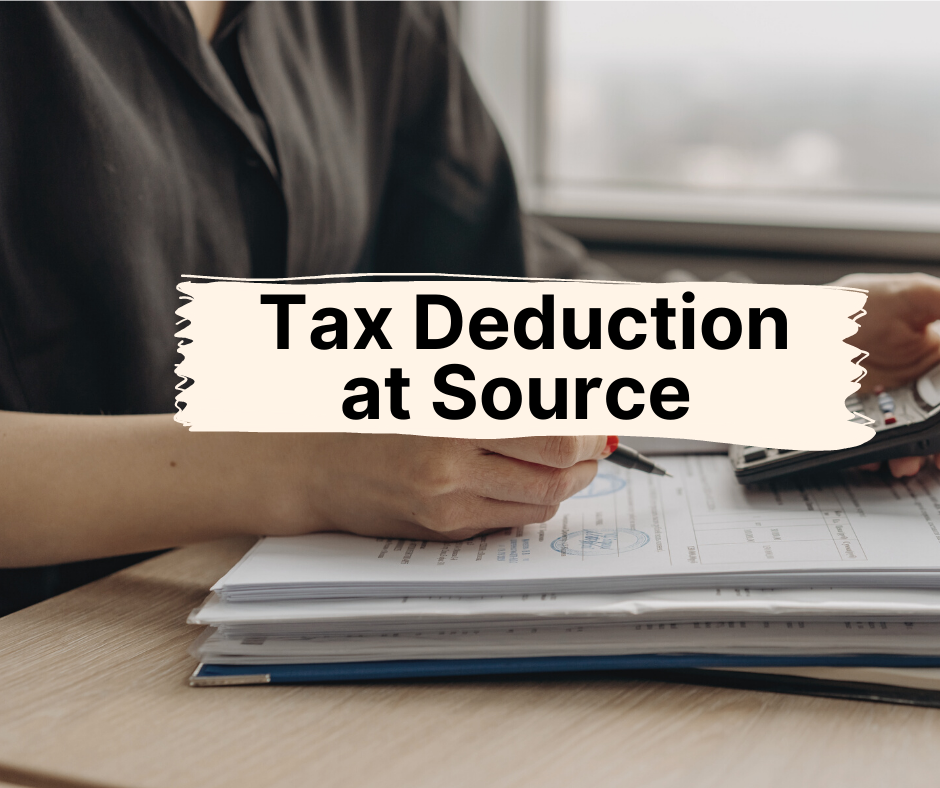Do you know that December 2018 is considered one of the significant years under the United States tax system?
As per the Tax Cuts and Jobs Act (TCJA), a massive tax reform law came into the picture, known as 199A or the 20% pass-through deduction law.
The pass through deduction law was presented to the small business owners where they got a chance to reduce the 20% of their qualified income earned from a qualified trade or a business.
The purpose of this law was to make a big difference in the amount of the tax and individuals owed.
After the introduction of the law, there were a few lines of confusion left as to which businesses were eligible for the deduction.
Words like 'qualified income' or 'qualified trade or businesses' left people confused with many questions, especially what to consider under the same.
So in order to determine whether the business qualifies or not, there is a list of requirements that one needs to fulfill to be eligible for the 20% pass-through deduction.
In this article, we will cover these unanswered questions in detail such that we get a clear picture of the pass-through deduction law.
The article consists of the following:
What are the requirements for the business to qualify for a 20% Pass-through deduction?
1. Applicable only for legitimate pass-through business
4. Specified service trade or business
5. Payment of Wages or owning real estate
Example to clear about the pass-through deductions
What are the requirements for the business to qualify for a 20% Pass-through deduction?
The requirements for a business to qualify for the 20% pass-through deduction are as follows:
- Applicable only for legitimate pass-through business
- Taxable income category
- You have a Qualified Business Income
- Specified service trade or business
- Payment of Wages or owning real estate
1. Applicable only for legitimate pass-through business
In order to be eligible for the pass-through deduction, your business must qualify as a pass-through business.
A pass-through business is any business that is operated and owned through a pass-through business entity that includes businesses like
- A sole proprietorship
- A partnership
- An S Corporation
- Limited liability company (LLC) or
- Limited liability partnership (LLP)
All of these businesses, as mentioned above, fall under this pass-through category. That means that their profits are passed through the business, and the owners pay tax on the money on the individual tax returns at the individual tax rates.
As a result, they don't have to pay taxes by themselves.
2. Taxable income category
The next set of requirements for any business to be eligible to pass through the deduction is to determine the taxable income and category they fall into.
- If you have a taxable income of less than $157500, considering you are single, married, filing separately, or head of household, you are eligible.
- If you have a taxable income of less than $315,000, considering you are married and filing jointly when you are eligible too
But if in case your taxable income turns above $157,500 or $315,500 in the respective categories, then your deduction is limited.
Moreover, if your taxable income is above $207,500 and $415,000, respectively, then you are not eligible for deduction at all
3. You have a Qualified Business Income
Qualified business income means the net income your pass-through business earns during the year.
The net income means you need to subtract all your regular business income from the total business income.
In mathematical terms,
|
QBI = Total
Business Income - Regular Income |
It is important to know that QBI includes rental income as long as a rental activity qualifies as a business. In addition, it also provides income from publicly traded partnerships, qualified cooperatives and real estate investment trusts (REITs).
However, there is some part of the income that is not included under Qualified Business Income, which is as follows:
- Dividend income
- Interest income
- Short term or long term capital gain or losses
- Wages paid to S corporation shareholders
- Guaranteed payments to partners in a partnership or LLC members
- Any business income earned outside the United States
4. Specified service trade or business
This requirement is uncertain as different lawyers and accountants have other ideas for the respective business structure and arrangement that comes under the 20% pass-through deduction.
As per as a specified service trade or business is concerned, the following are the fields that come under this category:
- Financial services
- Athletics
- Actuarial science
- Consulting
- Brokerage services
- Law
- Health
- Performing arts
- Investment management
- Trading or dealing in securities, partnership interests or commodities.
- Any business where the principal asset is the reputation or skill of one or more employees,
For example, a celebrity chef who endorses kitchen utensils branded with their name and image.
5. Payment of Wages or owning real estate
If your business pays wages or,
If your business has its real estate property or tangible assets that are eligible for depreciation,
then you need to calculate numbers to figure out how much of a deduction you eligible for
Let's say you are a business that pays wages and owns a qualified property, and then your deduction is in the form of following
- 20% of qualified business income
- Greater of
W-2 pages paid × 50%
W-2 pages paid × 50% + unadjusted basis,
That means the cost of your qualified property × 2.5%.
So these were the five major requirements that a business needs to fulfil to qualify for the 20% pass-through deduction.
Though the pass-through law might have certain exemptions to the requirements, it is always recommended to check through the details and consider those to calculate the taxable amount.
Example to clear about the pass-through deductions
Let's take the example for your better understanding of pass-through deductions:
Andrew is a solopreneur of Creamilicious LLC, a business that sells ice-creams for kids. As per the TCJA, Creamilicious is not considered a specified service trade or business, and Andrews's total taxable income for the year 2020 is $250000.
It means that even if the business is not considered a specified service, it is still eligible for the deduction because income is greater than $157,500.
Let's say,
- Creamilicious earned $1,50,000 in Qualified Business Income
- Paid $50,000 wages
- Had unadjusted basis of $60,000 in Qualified Property
Based on the above information, the tentative deduction can be found as follows
|
$150000 (QBI) ×
20% = $30,000 |
And now let's find out the next set of information
- $50,000 in wages × 50% = $25000
Or
- $50,000 in wages × 25% = $12,500 + $60,000 in qualified property × 2.5% = $1500
that equals $14,000
As per the calculation, $25000 is greater than $14,000,
That means we need to compare it to the 20% of the qualified business income from the part 1
That means:
|
Since the deduction is lesser of two, the pass-through deduction would be $25000
I hope the above example helps you to understand the pass-through deductions.
However, it is essential to know that there may be further details of pass-through law, and it may apply to respective businesses.
How Can Deskera Assist You?
As a business, you must be diligent with employee leave management. Deskera People allows you to conveniently manage leave, attendance, payroll, and other expenses. Generating payslips for your employees is now easy as the platform also digitizes and automates HR processes.

Key Takeaways
In this article, we answered all the questions related to pass-through deduction law and the eligibility criteria of businesses to qualify for the same.
Following are the key takeaways of the article:
- The pass-through deduction law was introduced in 2018 and is considered one of the significant years under the United States tax system.
- There are a set of 5 requirements for a business to qualify for the 20% pass-through deduction.
- The requirements are as follows:
- Applicable only for legitimate pass-through business
- Taxable income category
- You have a Qualified Business Income.
- Specified service trade or business
- Payment of Wages or owning real estate
- An example is to discuss a clear understanding of the pass-through reductions
Related Articles











